For an infinite line of charge having linear charge density λ lying along x-axis the work done in moving a charge q form C to A along CA is
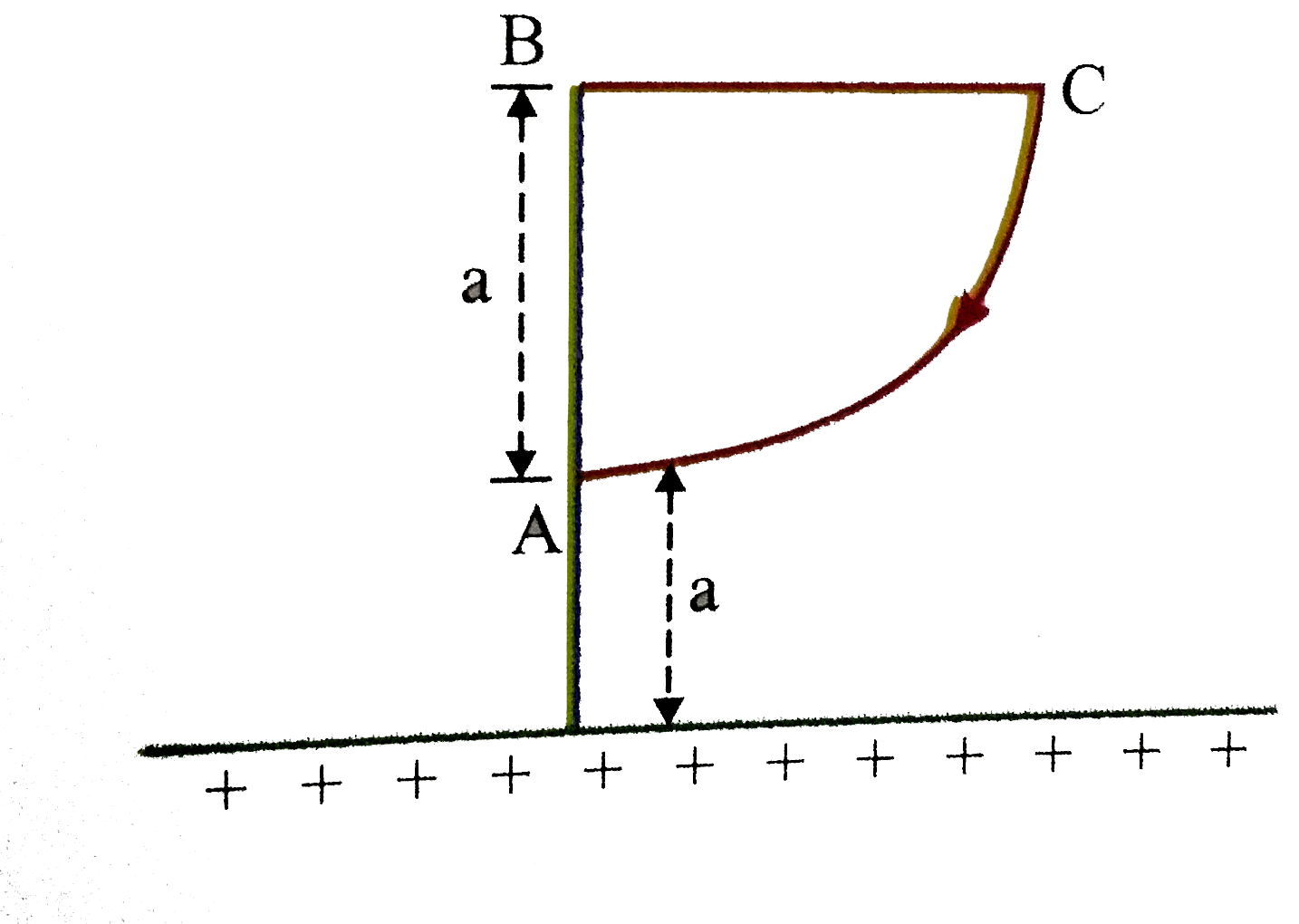
qλ2πε0In2
qλ2πε0In√2
qλ4πε0In2
qλ2πε0In(0.5)
The correct Answer is:A
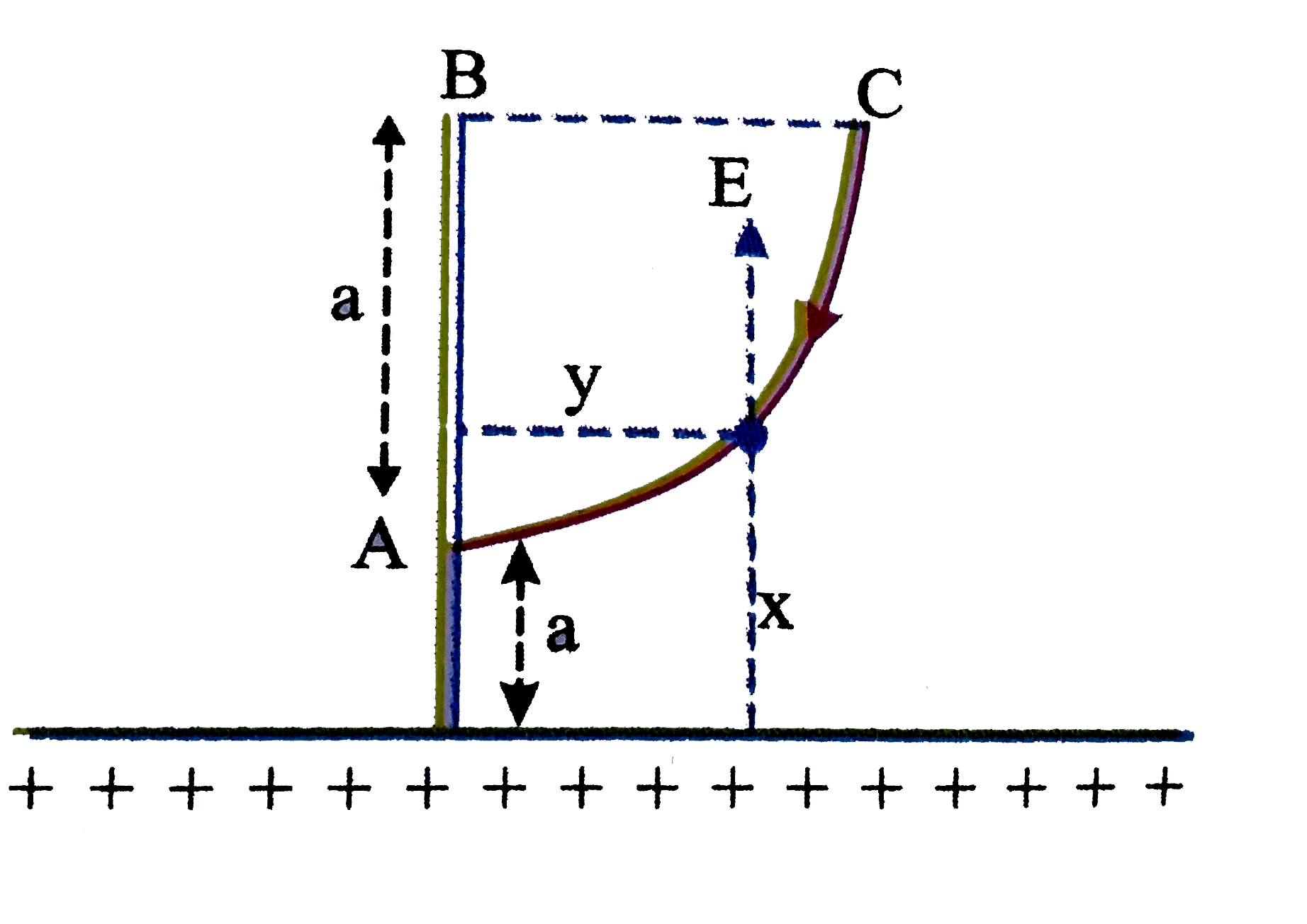
E=λ2πε0y for a small displacement
→dr=−(dyˆj+dxˆi)dw=→E.→dr
λ2πε0yˆj(−dyˆj−dxˆi)=−λ2πε0dyy
W=−λq2πε0(iny)a2a=−λq2πε0in(0.5)=λq2πε0in2
Topper's Solved these Questions
- ELECTROSTATICS AND GAUSS LAWBook:NARAYNAChapter:ELECTROSTATICS AND GAUSS LAWExercise:Passage I
Explore 3 Videos
- ELECTROSTATICS AND GAUSS LAWBook:NARAYNAChapter:ELECTROSTATICS AND GAUSS LAWExercise:Passage II
Explore 3 Videos
- ELECTROSTATICS AND GAUSS LAWBook:NARAYNAChapter:ELECTROSTATICS AND GAUSS LAWExercise:NCERT based Question
Explore 14 Videos
- ELECTROSTATIC POTENTIAL AND CAPACITANCEBook:NARAYNAChapter:ELECTROSTATIC POTENTIAL AND CAPACITANCEExercise:ADDITIONAL PROBLEMS
Explore 14 Videos
- EXPERIMENTAL PHYSICSBook:NARAYNAChapter:EXPERIMENTAL PHYSICSExercise:Comprehension type
Explore 6 Videos
Similar Questions
Find the total force on charge q due to a charge rod having linear charge density λCm placed as shown in figure.
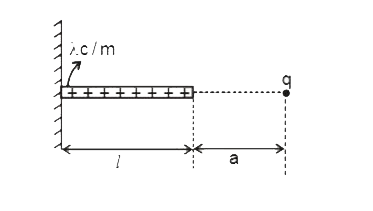
View SolutionFind electric field at point A, B, C, D due to infinitely long uniformly charged wire with linear charge density λ and kept along z-axis (as shown in figure). Assume that all the parameters are in S.l. units.
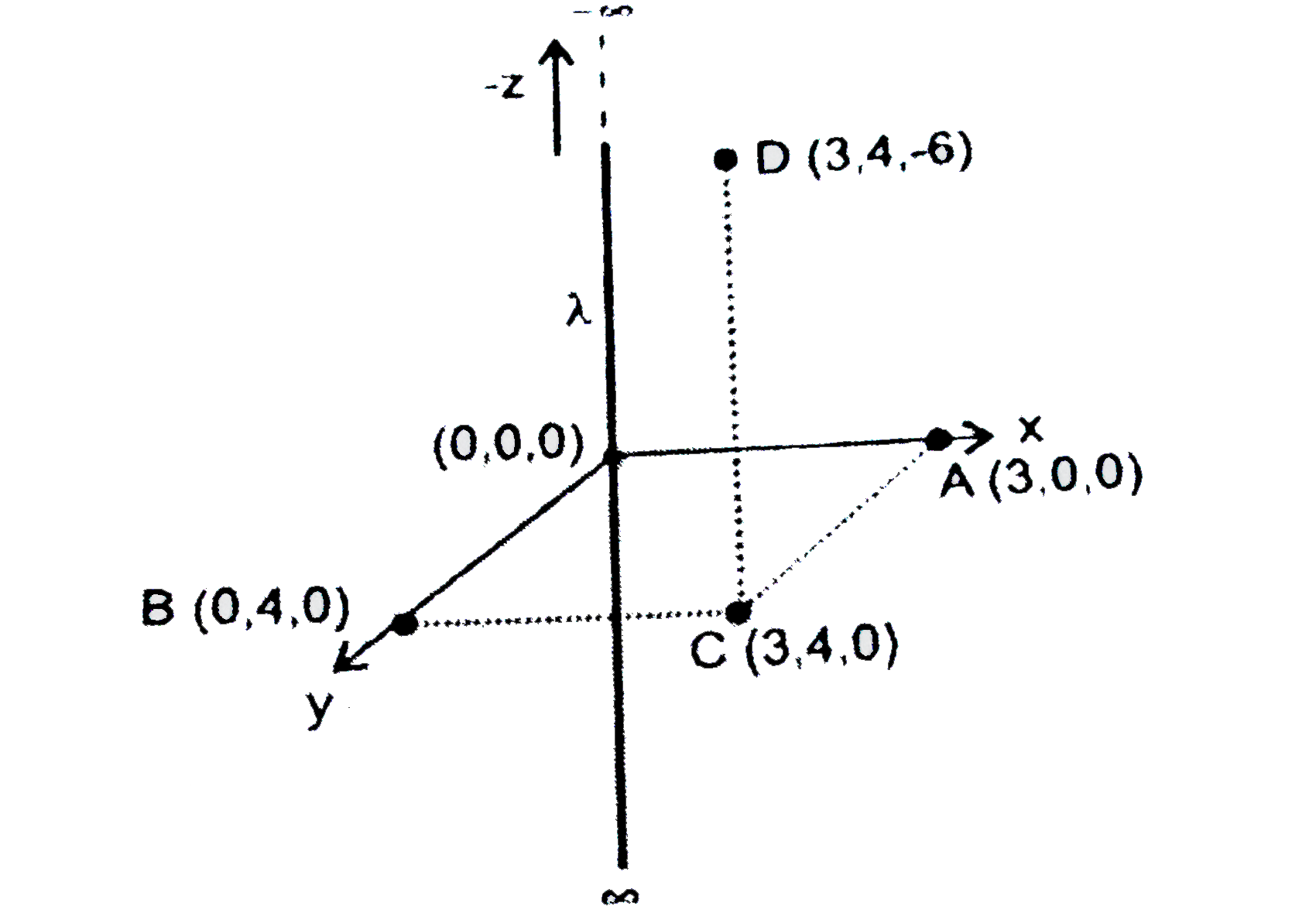
View Solution
Knowledge Check
An infinite line of charge λ per unit length is placed along the y-axis. The work done in moving a charge q from A(a,0) to B(2a,0) is
Aqλ2πε0"ln" 2Bqλ2πε0ln(12)Cqλ4πε0)ln√2Dqλ4πε0ln2Consider an infinite line charge having uniform linear charge density and passing through the axis of a cylinder is removed.
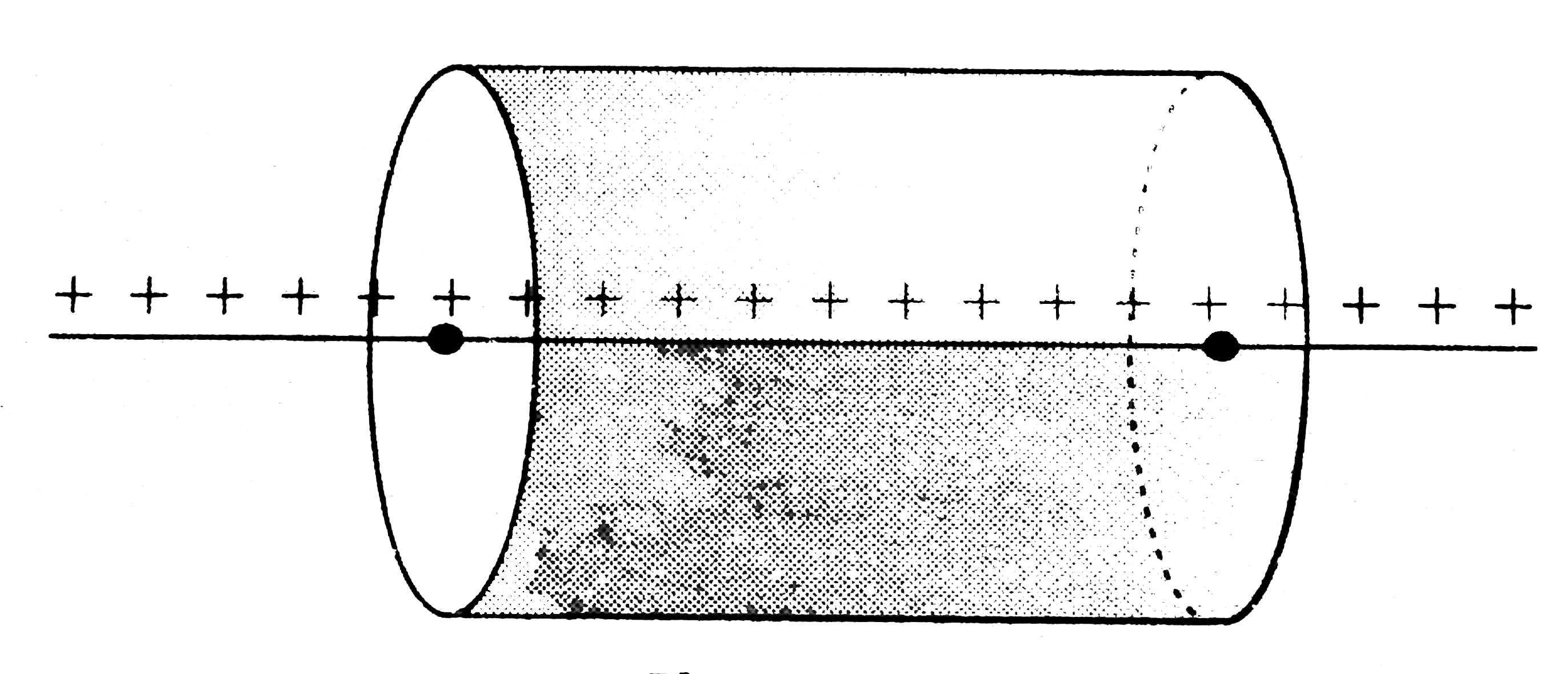 AdecreaseBincreasesCremains sameDcannot say
AdecreaseBincreasesCremains sameDcannot sayThe dimensional formula of linear charge density λ is
A[M−1L−1T+1A]B[M0L−1T+1A]C[M−1L−1T+1A−1]D[M0L−1T+1A−1]
An infinitely long time charge has linear charge density λC/m the line charge is along the line x=0,z=2m find the electric field at point (1,1,1) m.
View SolutionThe are AB with the centre C and infinitely long wire having linear charge density λ are lying in the same plane. The minium amount of work to be done to move a point charge q0 from point A to B through a circular path AB of radius a is equal to
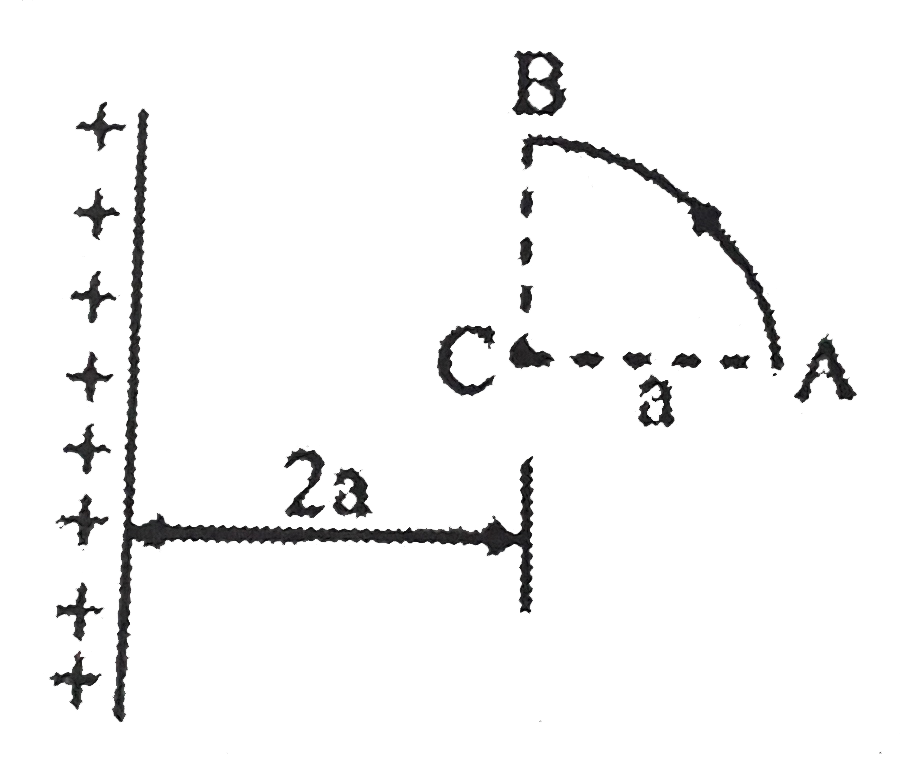
View SolutionIf linear charge density of a wire as shown in the figure is λ
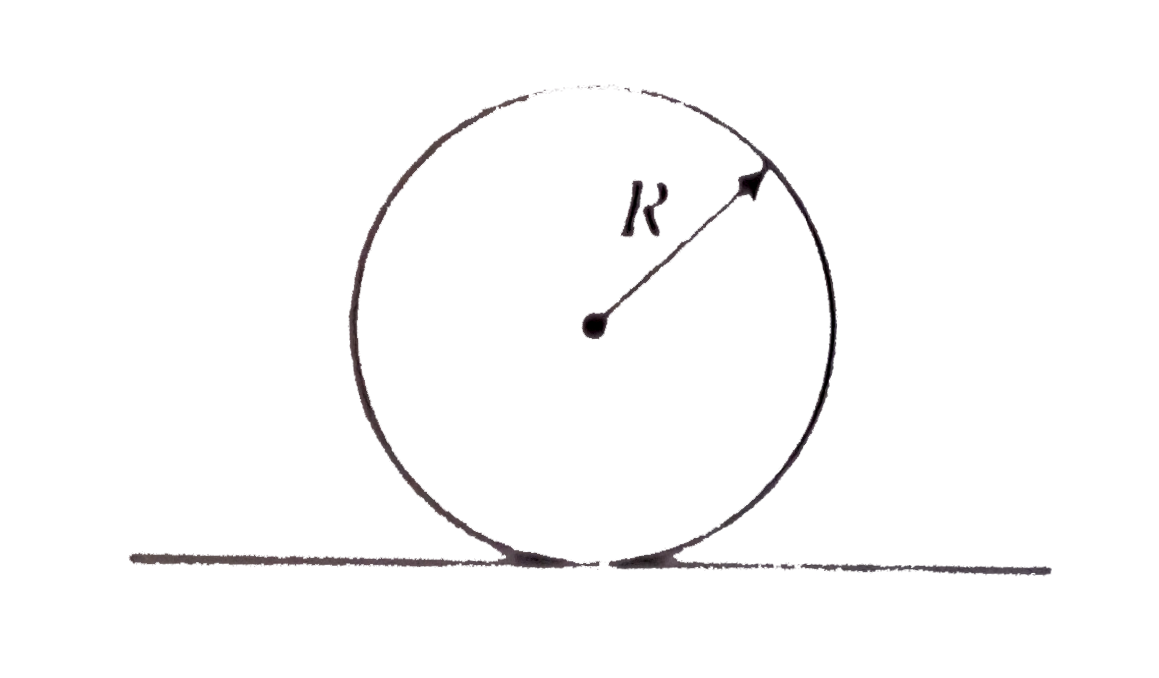
View SolutionThe arc AB with the centre C and the infinitely long wire having linear charge density λ are lying in the same place. The minimum amount of work to be done to move a point charge q0 from point A to B through a circuit path AB of radius a is equal to

View SolutionConsider an infinite line charge having uniform linear charge density and passing through the axis of a cyclinder. What will be the effect on the flux passing through curved surface if the portions of the line charge outside the cyclinder is removed
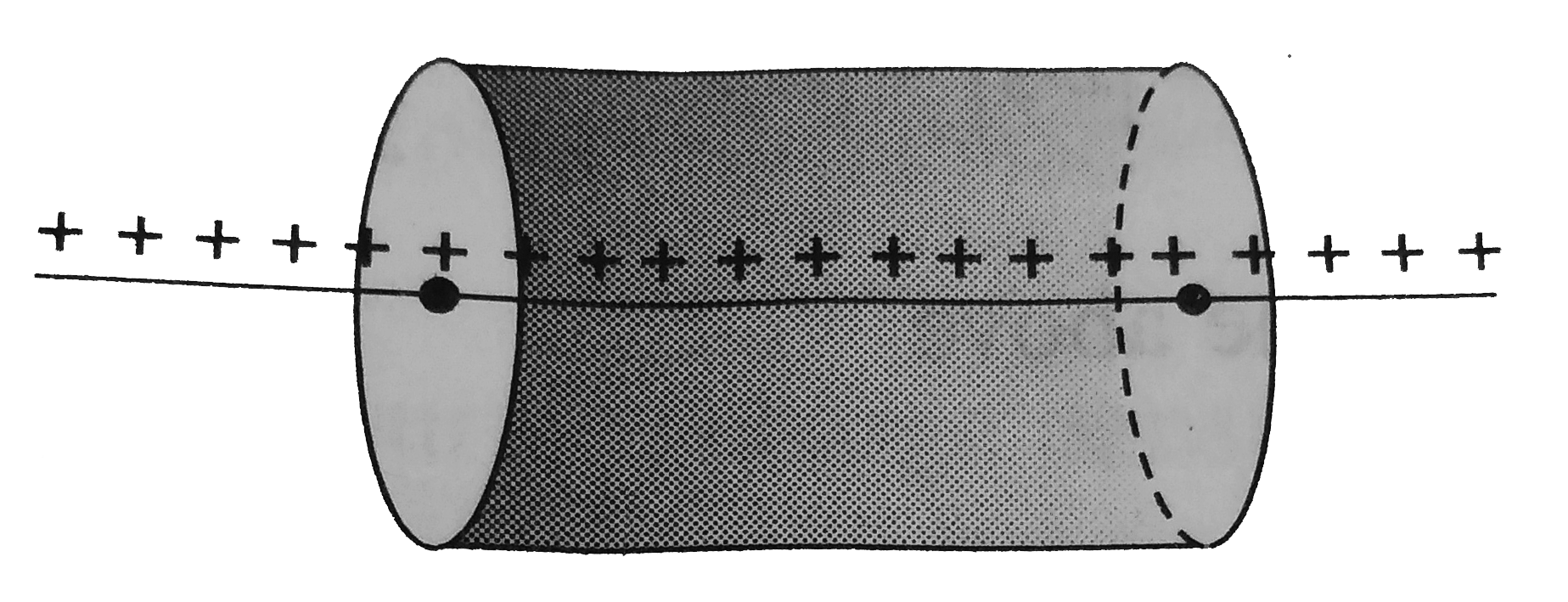
View Solution

